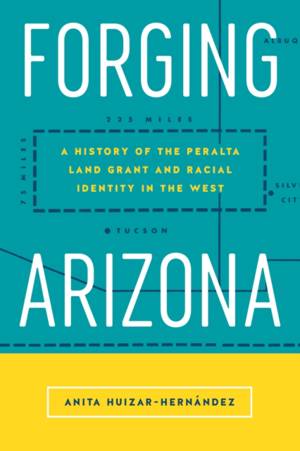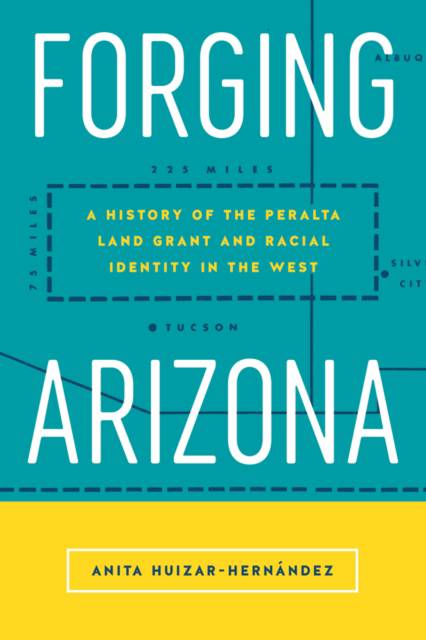
- Afhalen na 1 uur in een winkel met voorraad
- Gratis thuislevering in België vanaf € 30
- Ruim aanbod met 7 miljoen producten
- Afhalen na 1 uur in een winkel met voorraad
- Gratis thuislevering in België vanaf € 30
- Ruim aanbod met 7 miljoen producten
Zoeken
Forging Arizona
A History of the Peralta Land Grant and Racial Identity in the West
Anita Huizar-Hernández
€ 48,45
+ 96 punten
Uitvoering
Omschrijving
In Forging Arizona Anita Huizar-Hernández looks back at a bizarre nineteenth-century land grant scheme that tests the limits of how ideas about race, citizenship, and national expansion are forged. During the aftermath of the U.S.-Mexico War and the creation of the current border, a con artist named James Addison Reavis falsified archives around the world to pass his wife off as the heiress to an enormous Spanish land grant so that they could claim ownership of a substantial portion of the newly-acquired Southwestern territories. Drawing from a wide variety of sources including court records, newspapers, fiction, and film, Huizar-Hernández argues that the creation, collapse, and eventual forgetting of Reavis's scam reveal the mechanisms by which narratives, real and imaginary, forge borders. An important addition to extant scholarship on the U.S Southwest border, Forging Arizona recovers a forgotten case that reminds readers that the borders that divide nations, identities, and even true from false are only as stable as the narratives that define them.
Specificaties
Betrokkenen
- Auteur(s):
- Uitgeverij:
Inhoud
- Aantal bladzijden:
- 180
- Taal:
- Engels
- Reeks:
Eigenschappen
- Productcode (EAN):
- 9780813598819
- Verschijningsdatum:
- 5/04/2019
- Uitvoering:
- Paperback
- Formaat:
- Trade paperback (VS)
- Afmetingen:
- 150 mm x 226 mm
- Gewicht:
- 272 g

Alleen bij Standaard Boekhandel
+ 96 punten op je klantenkaart van Standaard Boekhandel
Beoordelingen
We publiceren alleen reviews die voldoen aan de voorwaarden voor reviews. Bekijk onze voorwaarden voor reviews.











